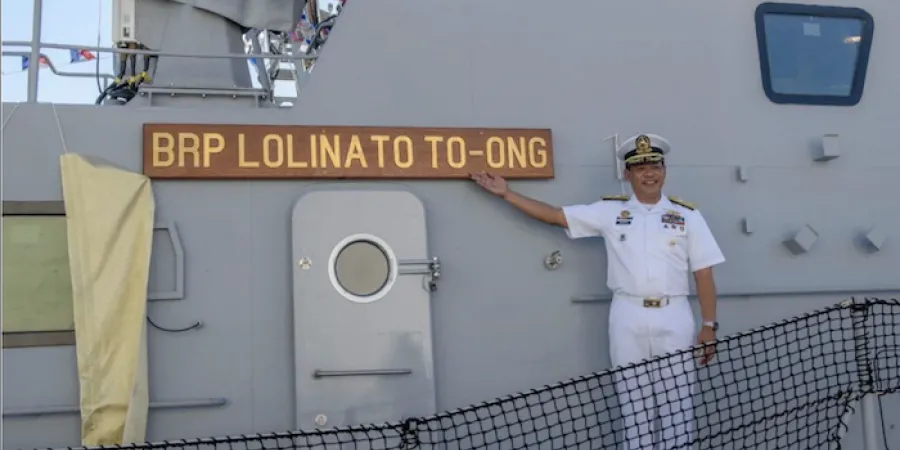Israeli Shaldag ship deal with Philippines estimated at $175 million
In early September, two Shaldag Mark 5 ships – designated FAIC-M in the Philippine Navy - were delivered to the Philippines. Three more are slated to be delivered this year, while the remaining four units will be constructed at the PN shipyard
Eyal Boguslavsky
|
21/09/2022
Additional details have recently been published in the Philippine media about the deal to purchase the Shaldag Mark 5 patrol vessels from Israeli shipyards. According to the government website Pna.gov.ph, the total value of the deal - which includes 9 patrol ships - is about 175 million dollars.
In early September 2022, two Shaldag Mark 5 ships – designated FAIC-M in the Philippine Navy - were delivered to the Philippine Army. Three more are slated to be delivered this year while the remaining four units will be constructed at the PN shipyard in Naval Station Pascual Ledesma, Cavite City.
These vessels are expected to replace the force of patrol killer medium (PKM) or medium-sized patrol craft. These 32-meter high-speed vessels are equipped with quick intercept ability, remote stabilized weapons, and short-range missiles that are capable to deliver precision strikes against larger hostiles and high-value targets on land and sea.
Four of the FAIC-Ms will be armed with non-line-of-sight (NLOS) missiles with pinpoint accuracy and a range of 25 kilometers while the remainder will be armed with machine guns and light automatic cannons.
"These fast patrol craft will significantly strengthen the PN in addressing challenges in the maritime realm that include law violations like illegal fishing, foreign vessels' intrusion, smuggling and armed robbery at sea; and transnational maritime threats like piracy, drug smuggling and human trafficking," it said in a Philippine Navy (PN) statement.
In early September, two Shaldag Mark 5 ships – designated FAIC-M in the Philippine Navy - were delivered to the Philippines. Three more are slated to be delivered this year, while the remaining four units will be constructed at the PN shipyard
Additional details have recently been published in the Philippine media about the deal to purchase the Shaldag Mark 5 patrol vessels from Israeli shipyards. According to the government website Pna.gov.ph, the total value of the deal - which includes 9 patrol ships - is about 175 million dollars.
In early September 2022, two Shaldag Mark 5 ships – designated FAIC-M in the Philippine Navy - were delivered to the Philippine Army. Three more are slated to be delivered this year while the remaining four units will be constructed at the PN shipyard in Naval Station Pascual Ledesma, Cavite City.
These vessels are expected to replace the force of patrol killer medium (PKM) or medium-sized patrol craft. These 32-meter high-speed vessels are equipped with quick intercept ability, remote stabilized weapons, and short-range missiles that are capable to deliver precision strikes against larger hostiles and high-value targets on land and sea.
Four of the FAIC-Ms will be armed with non-line-of-sight (NLOS) missiles with pinpoint accuracy and a range of 25 kilometers while the remainder will be armed with machine guns and light automatic cannons.
"These fast patrol craft will significantly strengthen the PN in addressing challenges in the maritime realm that include law violations like illegal fishing, foreign vessels' intrusion, smuggling and armed robbery at sea; and transnational maritime threats like piracy, drug smuggling and human trafficking," it said in a Philippine Navy (PN) statement.



